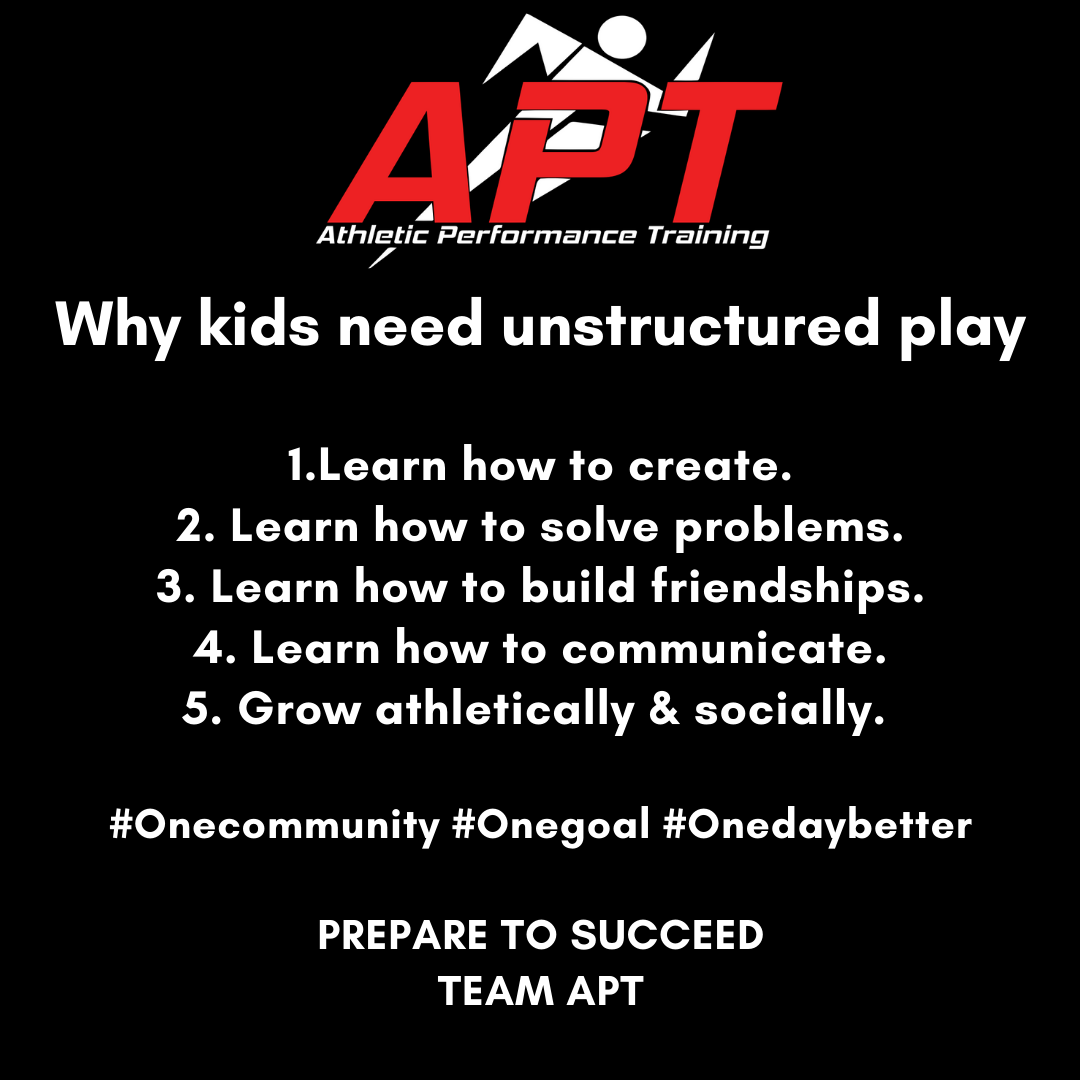Why kids need unstructured play

Why Children Need Unstructured Play
Just the other day, my wife and I were discussing how our five-year-old son always needs entertaining. He comes home from preschool, and asks one of us to play with him. We have him scheduled in multiple after school and weekend activities, which he loves, but when it comes to playing on his own, he seems like he needs some practice. After discussing this with friends, we found many shared the same experiences with their own children. We reminisced about when we were young and how we could play for hours on our own or with friends without our parents’ help. It seems that today’s children go from one structured activity to another and are being deprived of the opportunities that come from free play. The days of walking off the bus and playing outside until dark are over. Because of this changed environment, many children are less active and lack problem-solving skills. This is one reason why athletic development has declined and obesity has risen among children.
Without time for free play, children cannot fully learn how to organize games and problem solve with one another. Most organized activities solve these problems for children, making sure everyone is playing by the rules and using the proper form. As a young kid I came home from school and played outside with the other neighborhood kids. It was there that I learned to run faster, hit a baseball and turn on a dime when I was being chased in a game of tag. I learned the games that I liked and developed athletic skills through this unstructured play. Out in the neighborhood, we also all learned how to get along with one another and problem solve. As I grew older, I played a lot of different organized sports and learned what I liked the most. Children who focus on certain sports or activities too early are deprived of athletic growth. We should be giving our children a well-balanced diet of structured and unstructured play.
Our job as parents and coaches is to educate children about being active and living a healthy lifestyle. Children don’t always want a structured practice; they want to play.
Children need at least 60 minutes of unstructured free play each day. While this might shock parents and coaches, this is where a good amount of growth, repetition and development occur. Children will not only grow athletically, but socially. They will learn how to communicate, build friendships and problem solve.
When kids learn how to create, communicate, solve problems and build friendships, they can take these skills and use them for the rest of their lives, whether it's in high school, college, business or raising their own children some day. It gives them a chance to become well-rounded, healthy individuals.
Stay safe and healthy,
Team APT
